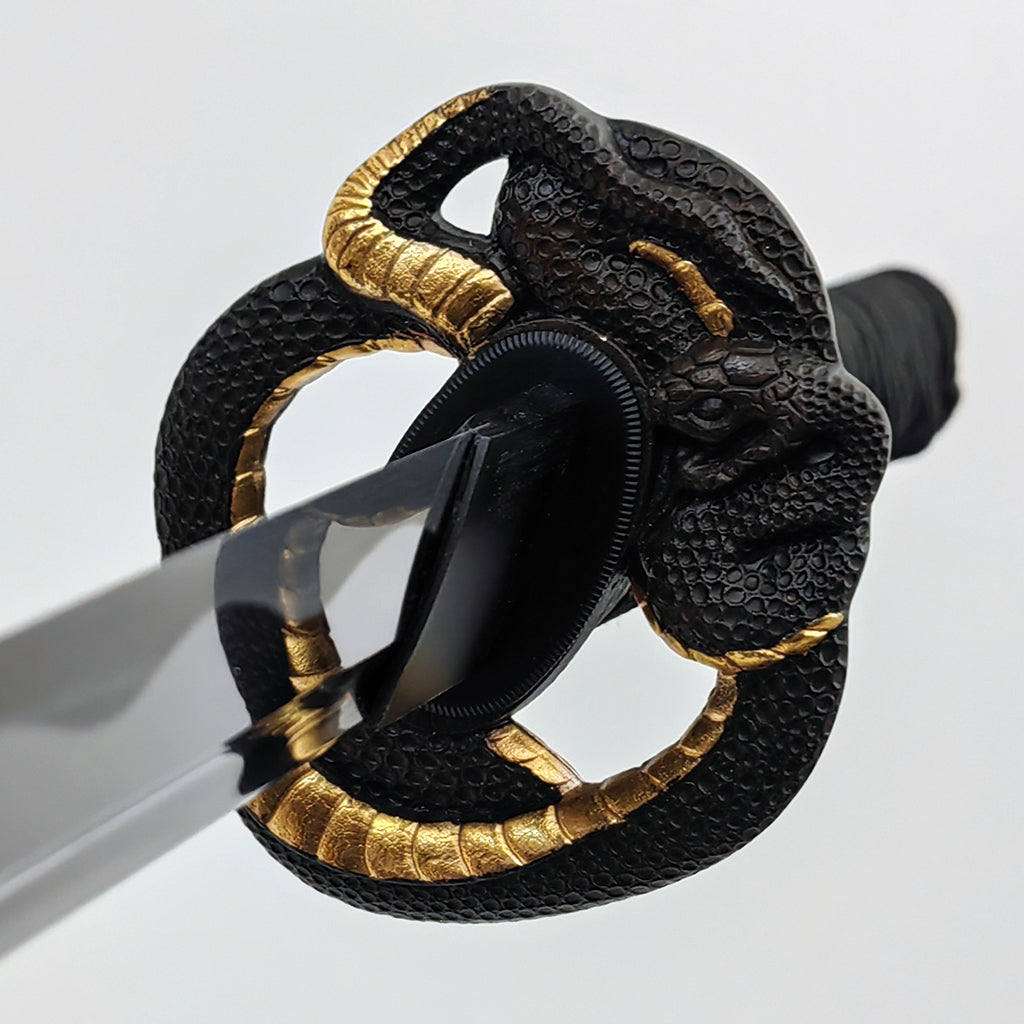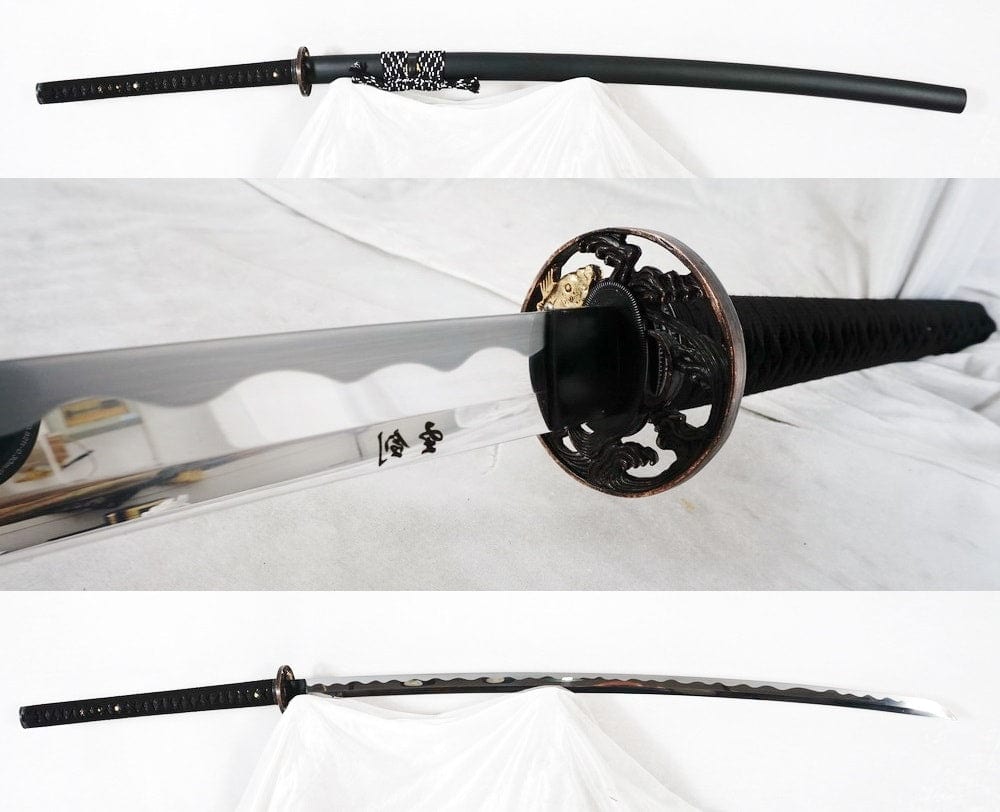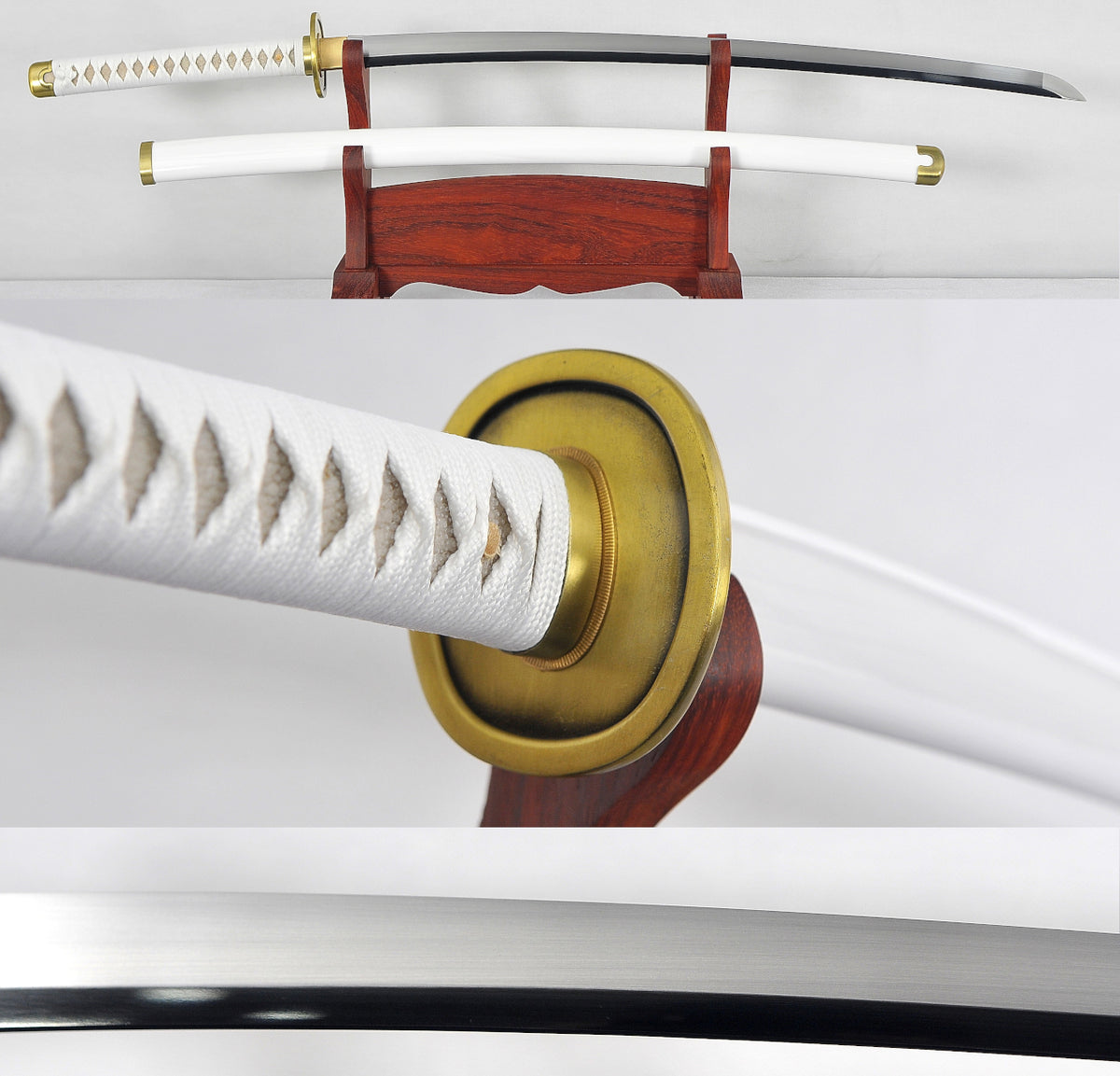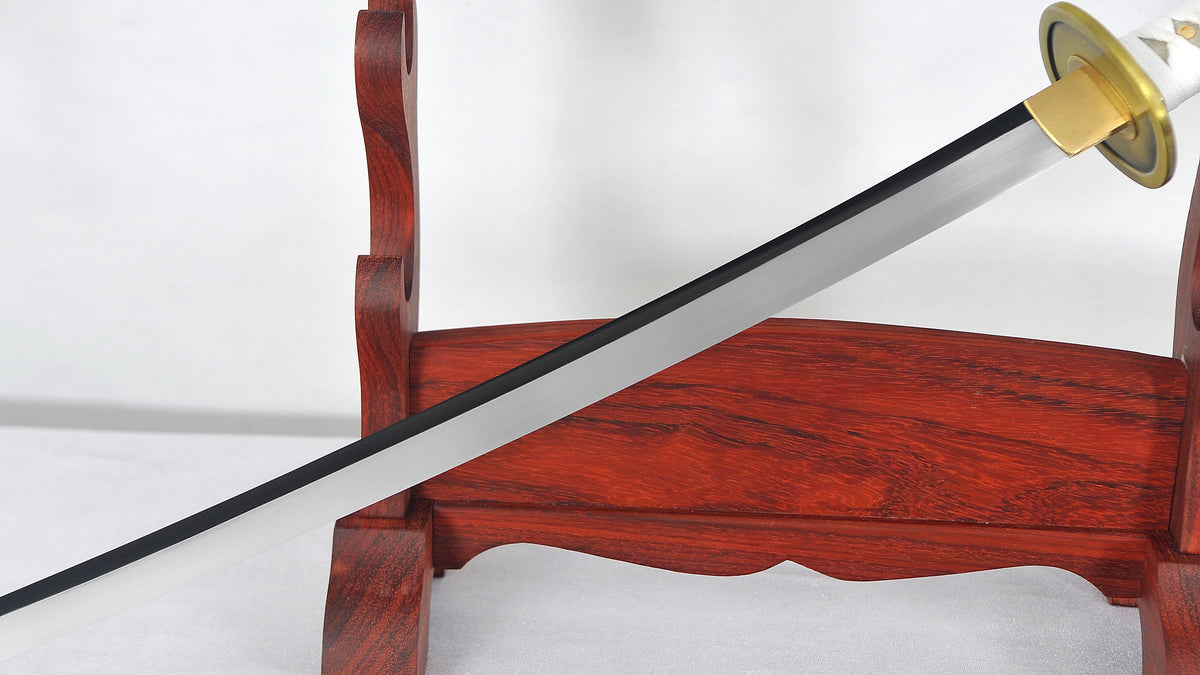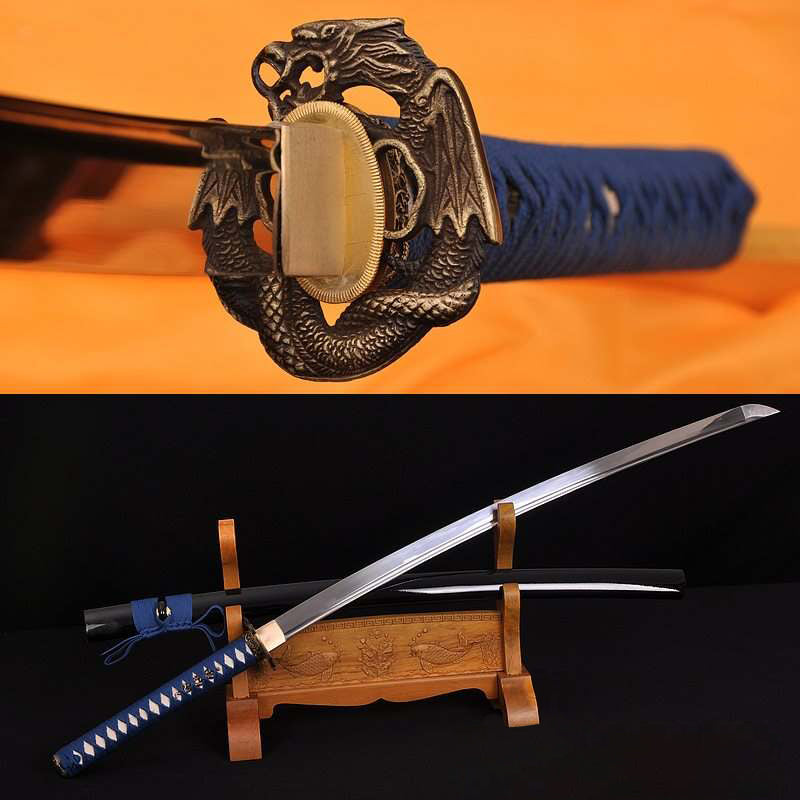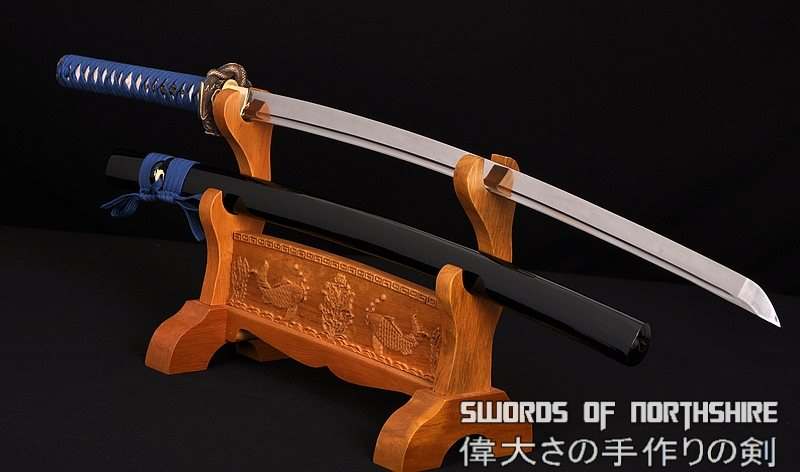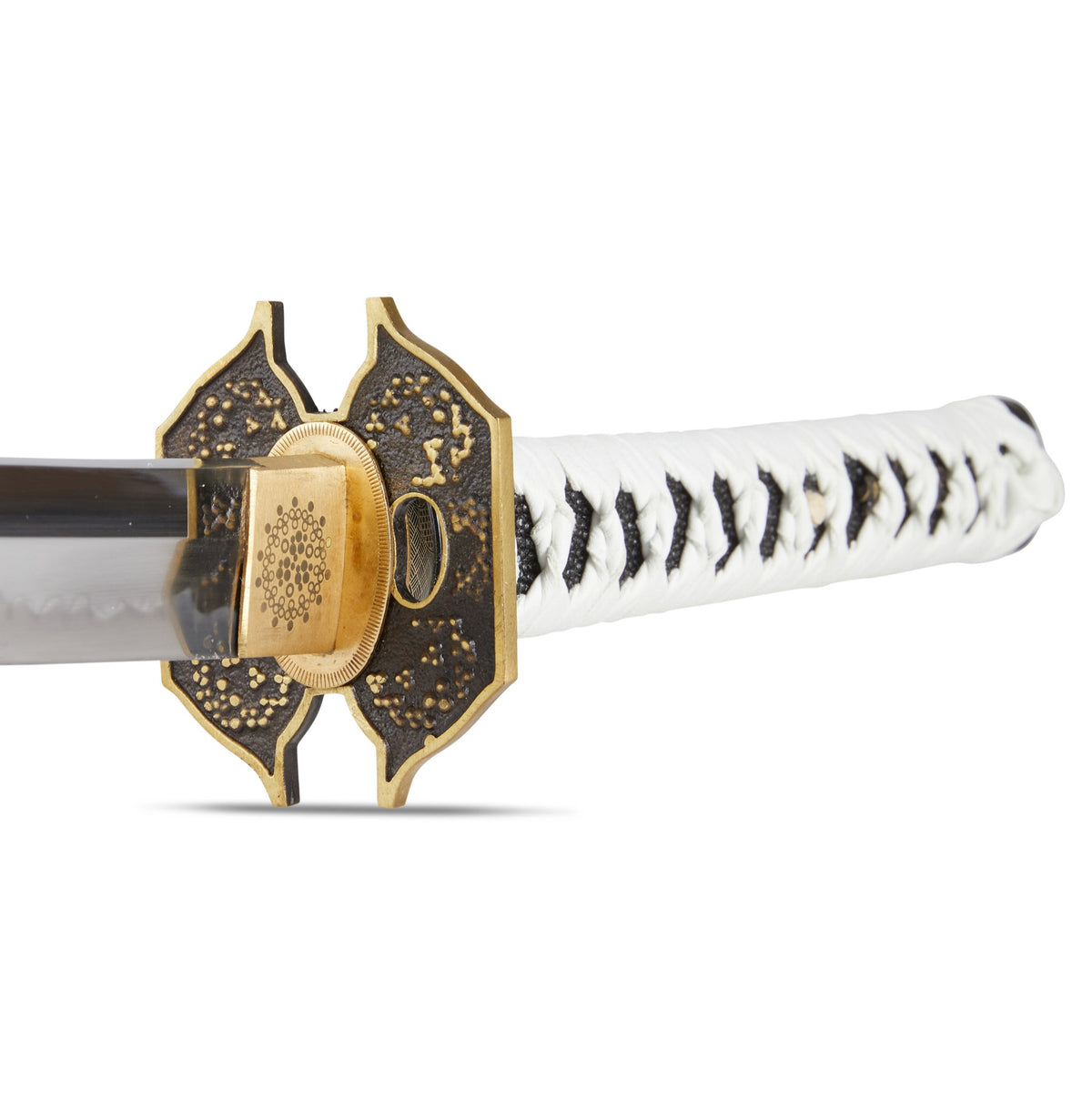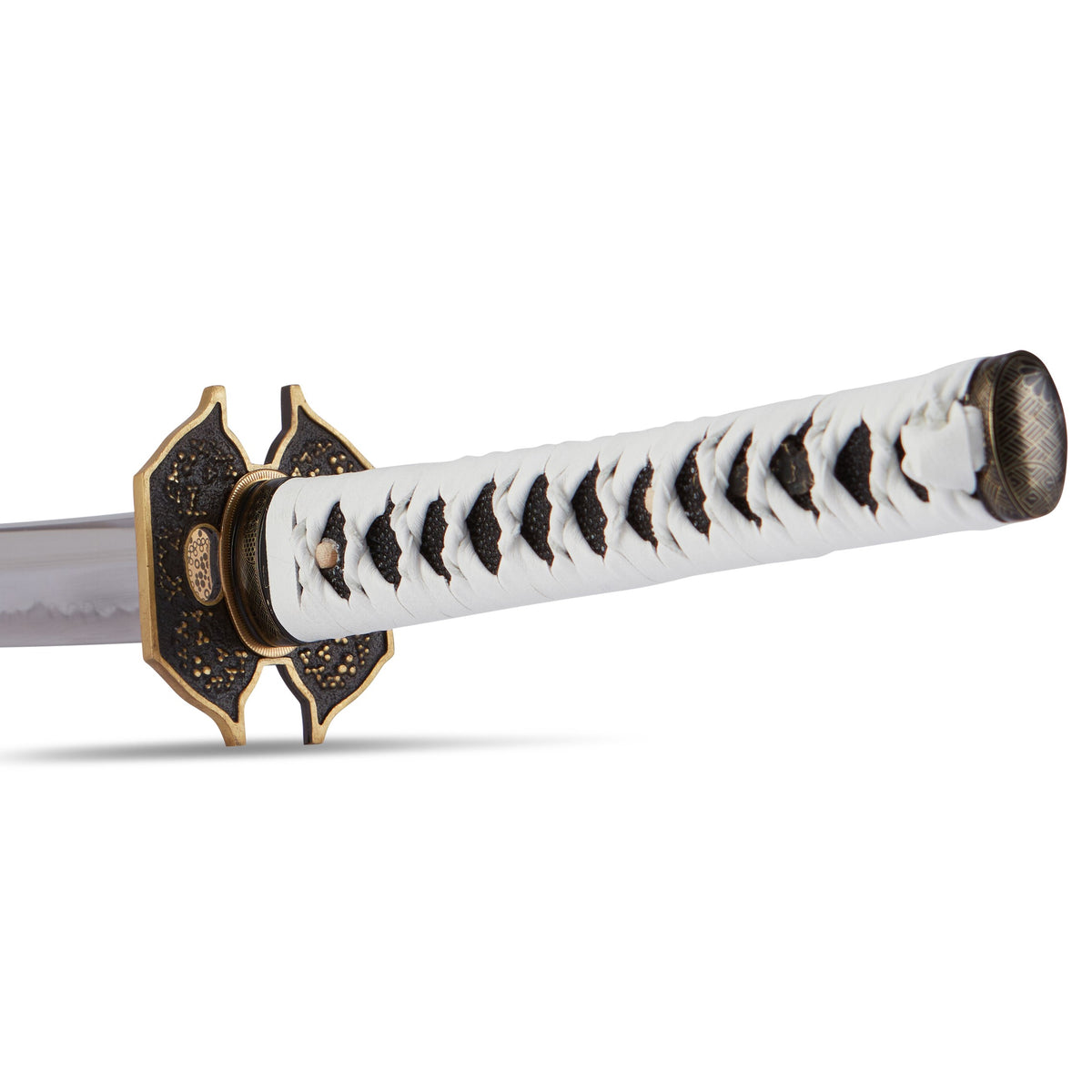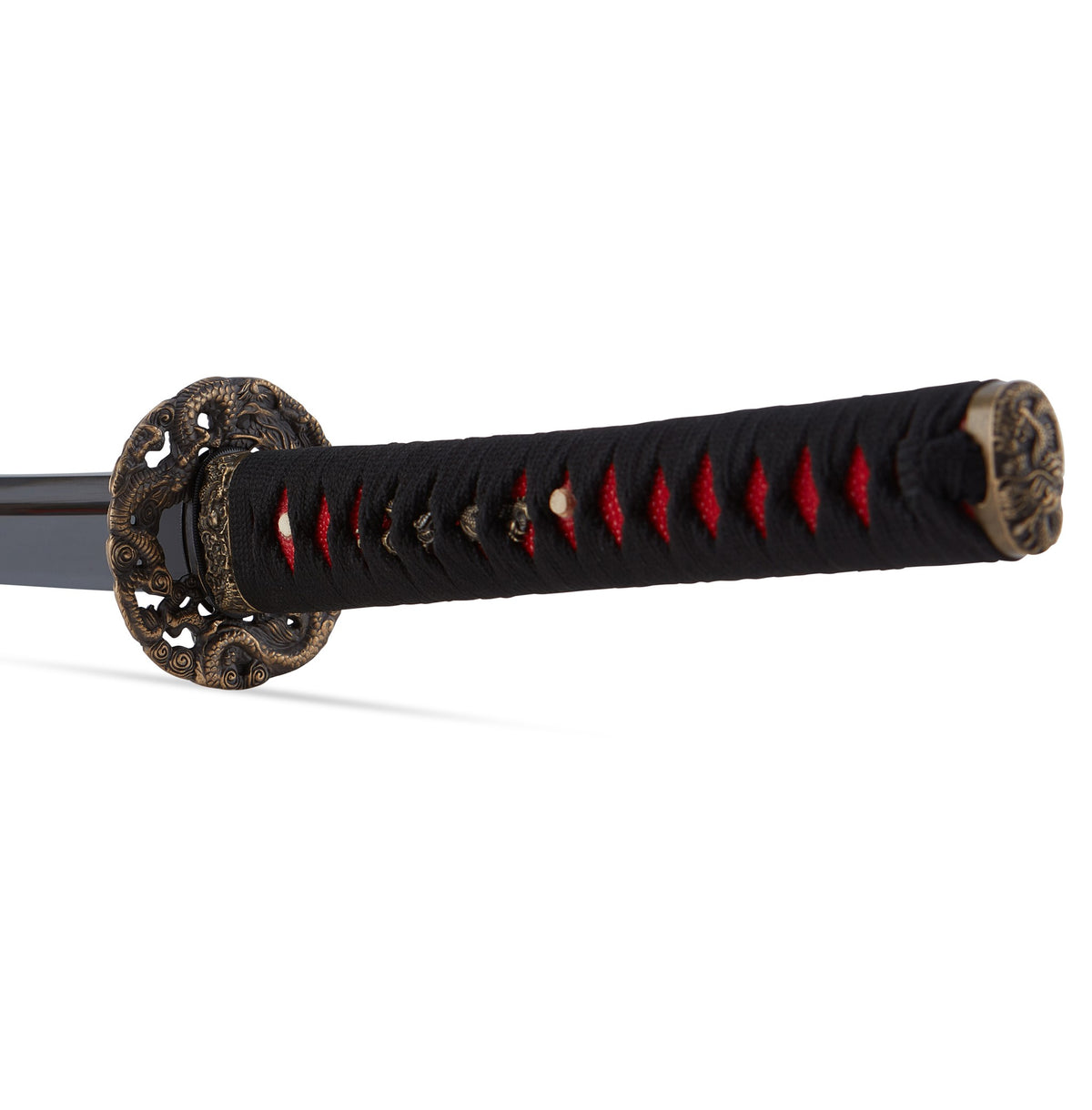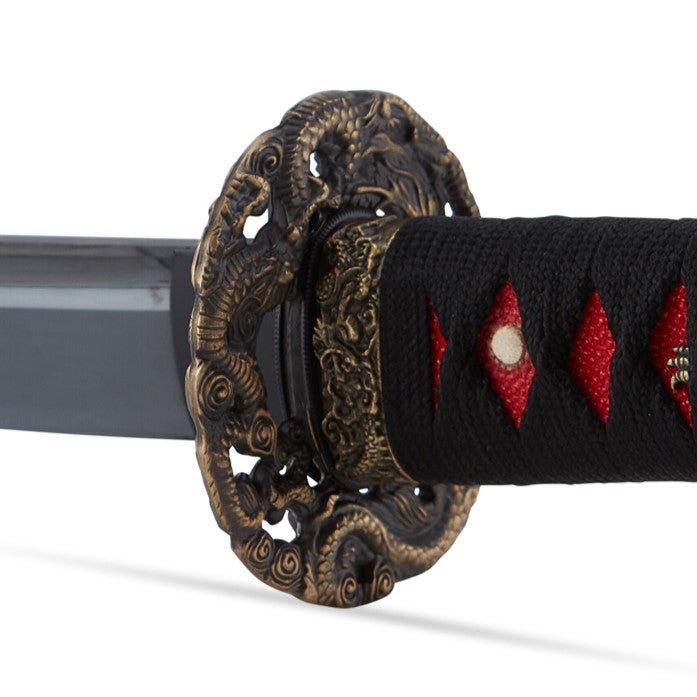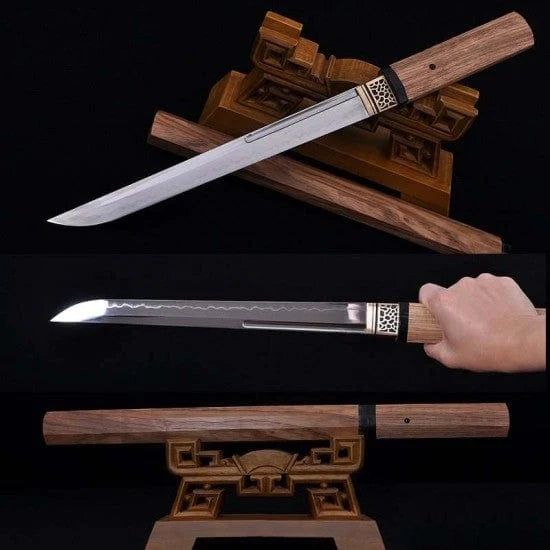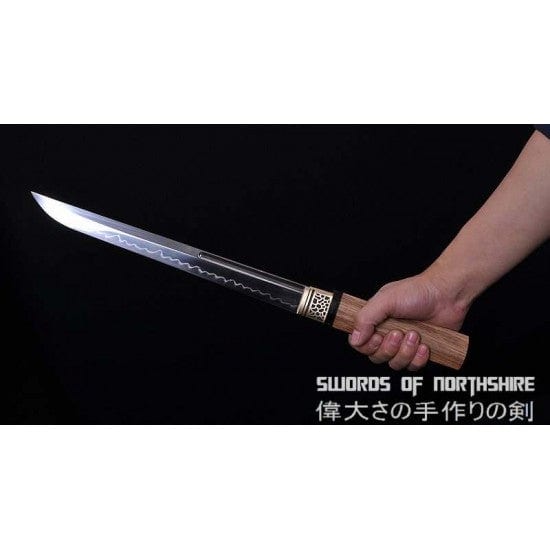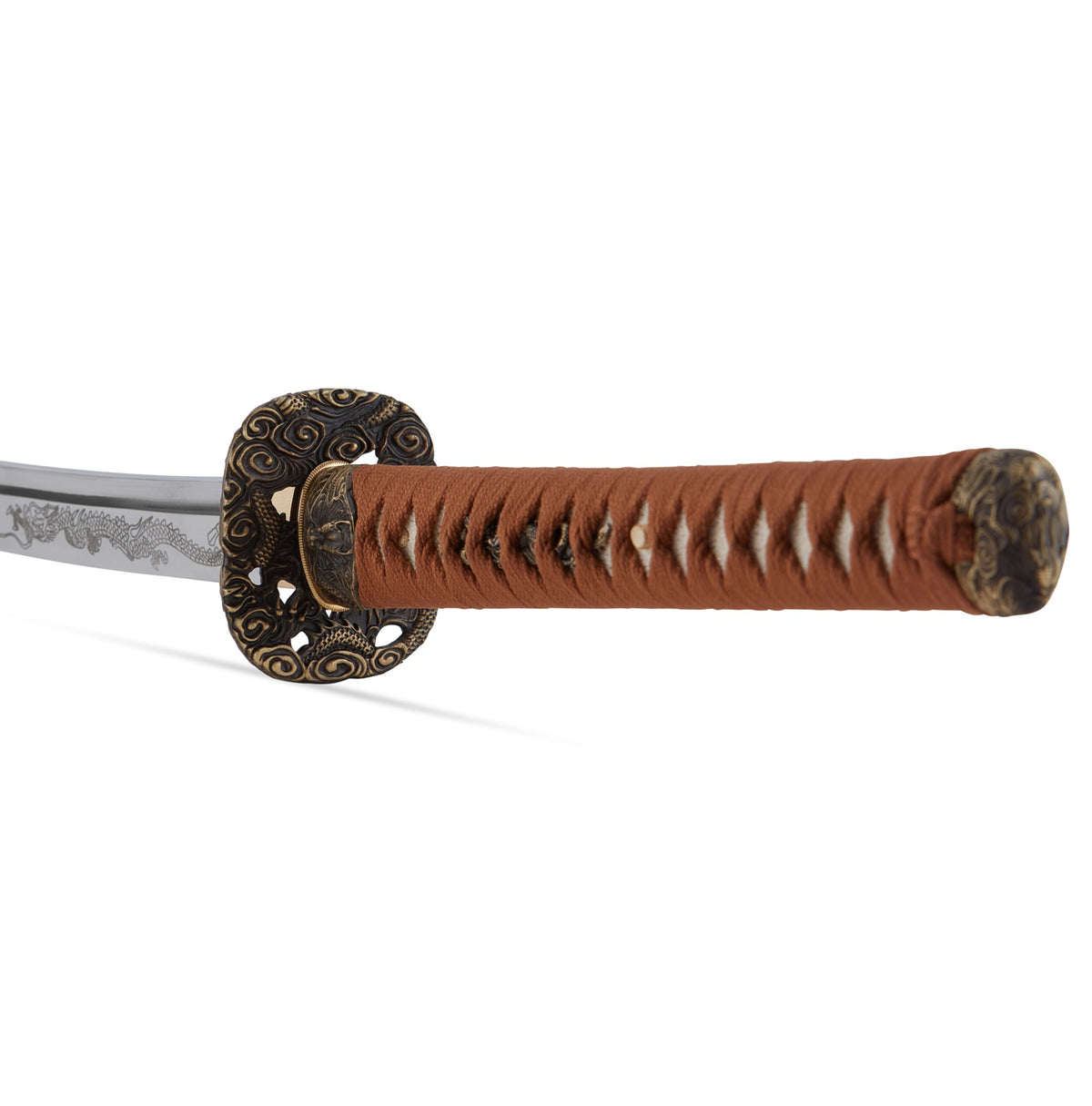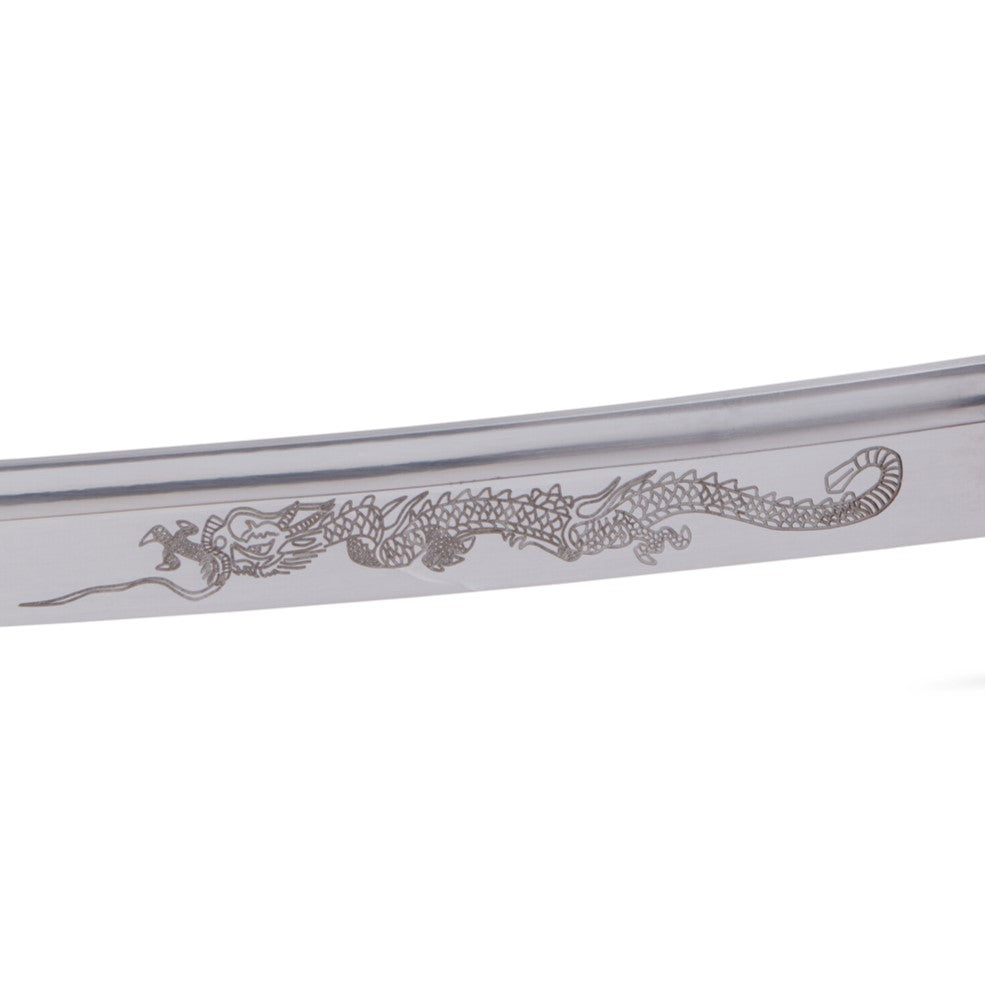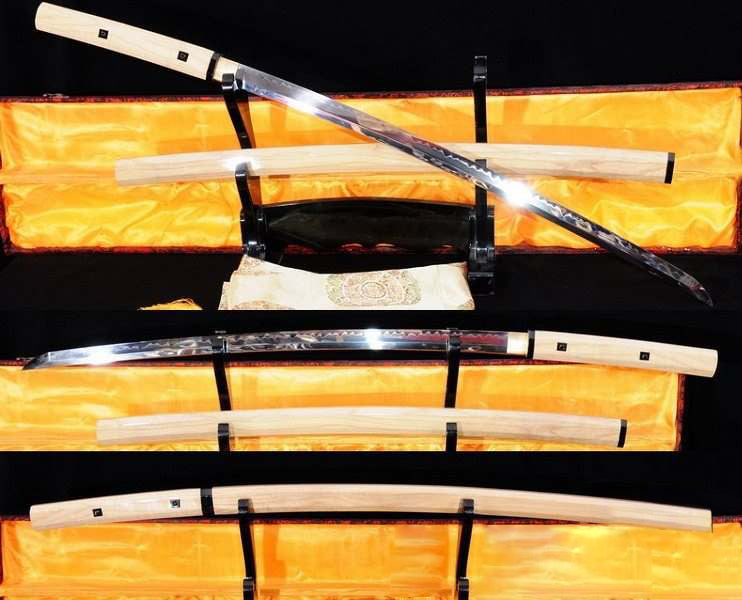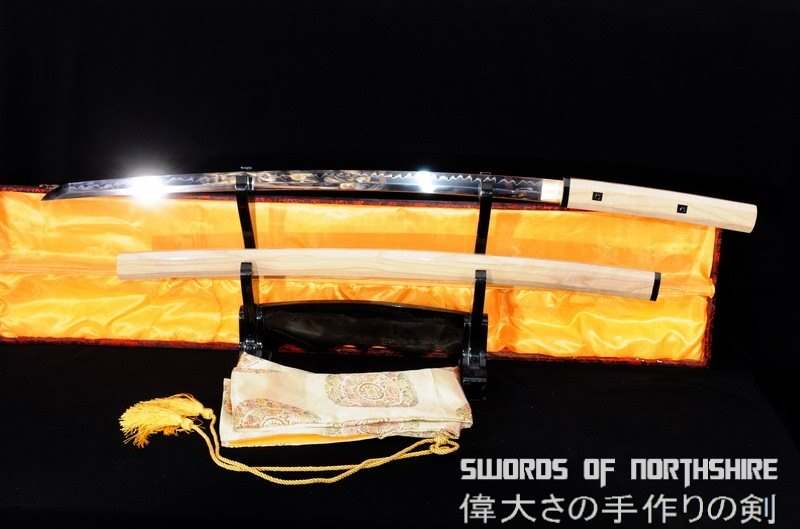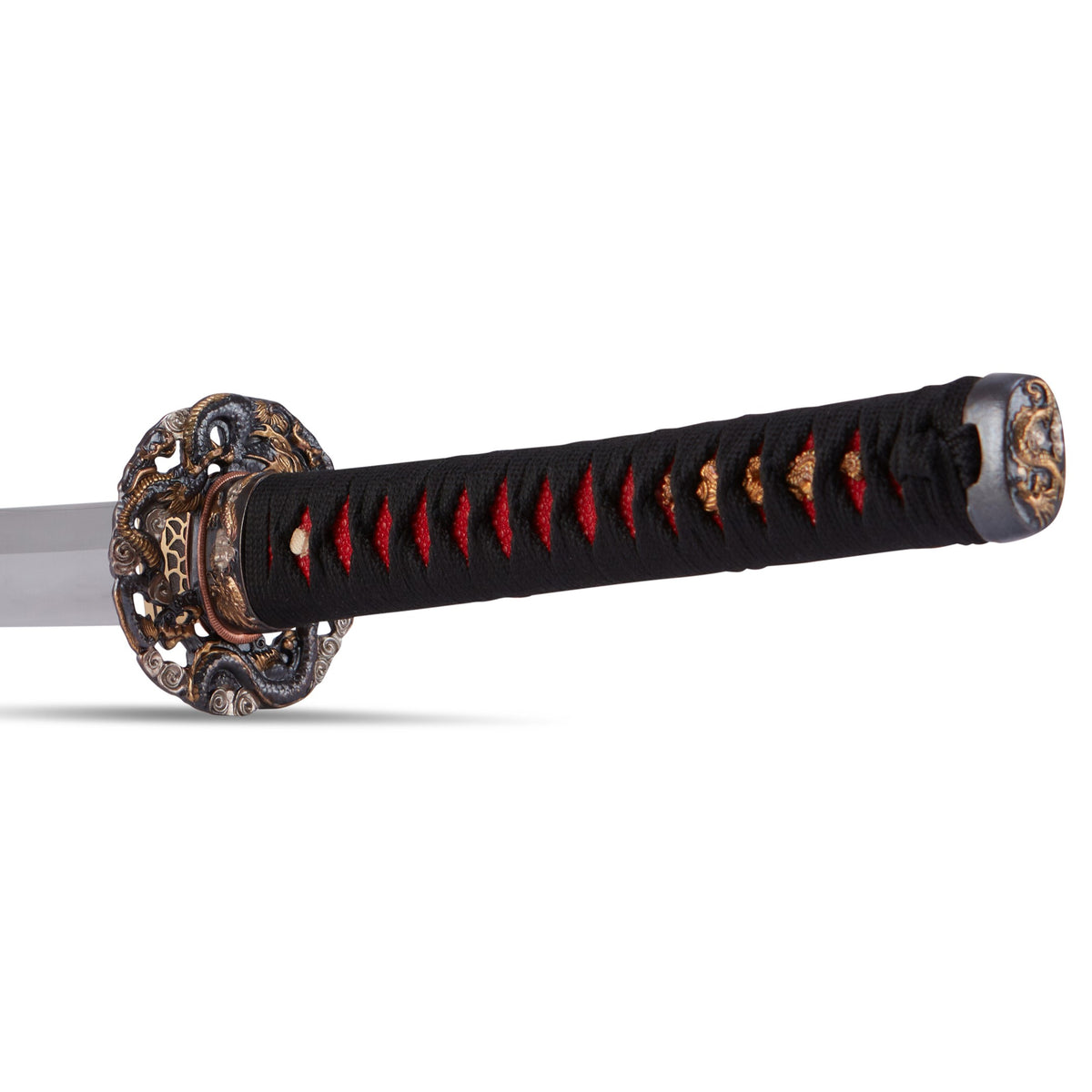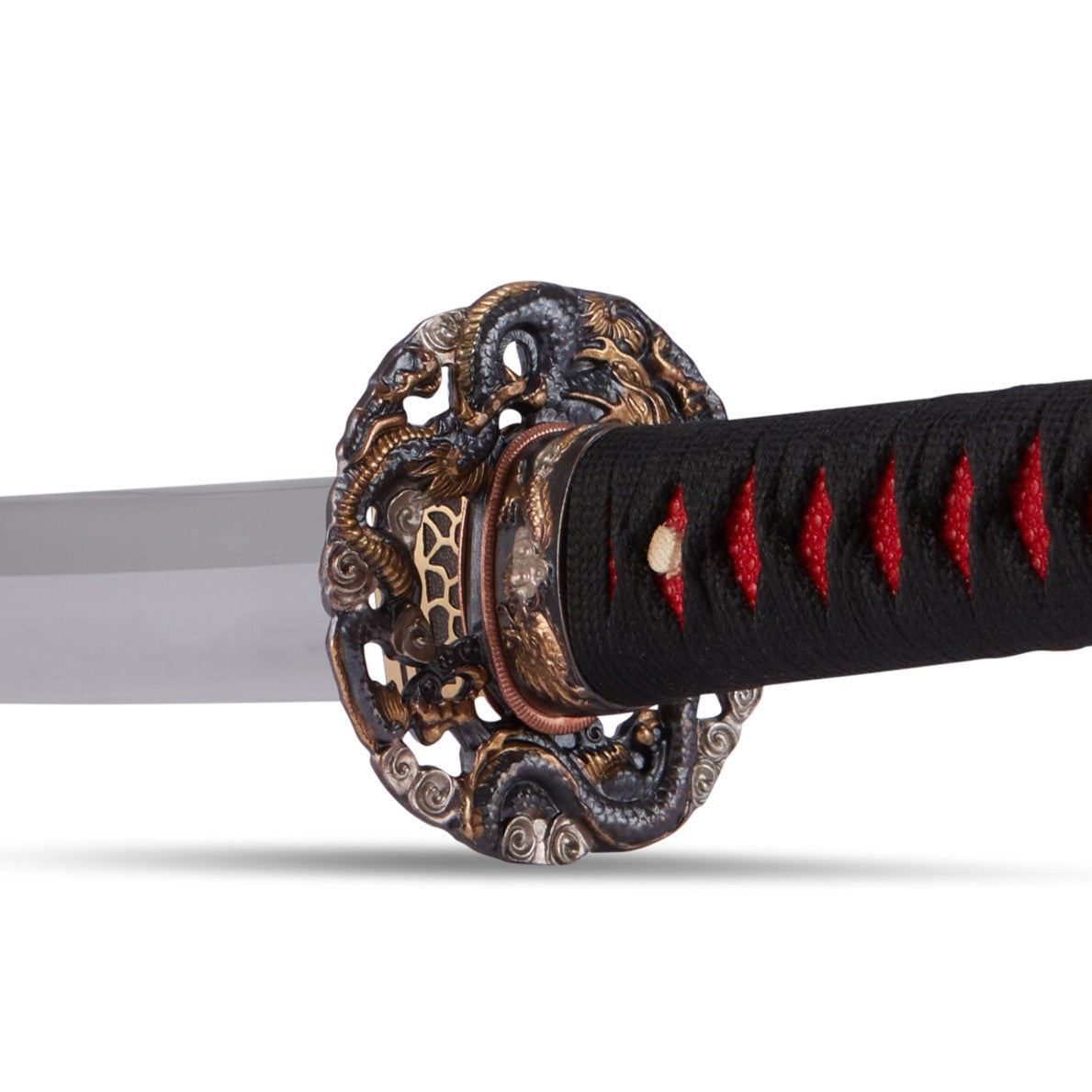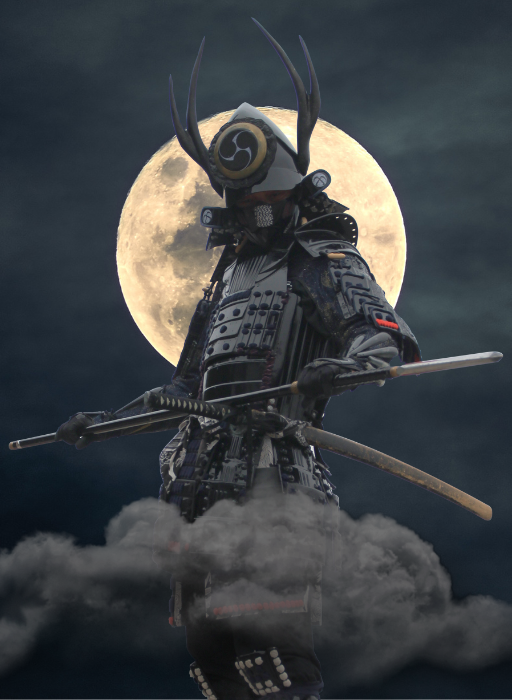Best Steel for Katana
When choosing the best steel for Katana, it’s crucial to note that each type of steel has its own pedigree and mix of elements and material. At the end of the day, the best steel depends on what it’s intended usage is. A look at some of the common steel options out there will make it easier to choose what type of steel best suits your preference when it comes to swords.
Best Steel for Katana
Carbon Steel Katana
Carbon steel is a great steel option for a Katana sword. Carbon steel is designated by the first two digits, 10, followed by a number ranging from 01 to 99 with each point signifying that 0.01% of the steel is carbon. For instance, 1095 carbon steel has 0.95% carbon content.
Katana blades are mostly made from 1045, 1060 and 1095 carbon steel.
- 1045 Carbon Steel
1045 carbon steel is the minimum acceptable standard for a katana sword. This specific type of metal can harden very well, but you’ll want to upgrade to something tougher if you want a long-lasting blade.
- 1060 Carbon Steel
1060 carbon steel provides a good balance of strength and hardness. Many durable swords are made from this type of steel. It’s more popular than 1045 carbon steel but more difficult to make.
- 1095 Carbon Steel
1095 carbon steel katanas can take and keep a much keener edge than katanas with lower carbon content. However, they can sometimes be a little on the brittle side compared to lower carbon alternatives.
Spring Steels
For the purposes of Katanas, the two main types of spring steel swords are the 5160 and 9260. Spring steels have a small amount of silicon added to them, which allows them to return to their original shape despite significant twisting or bending. As with plain carbon steels, they both have 0.60% carbon.
- 5160 Spring Steel
This steel is a low chromium alloy of steel. The chromium combined with a small amount of silicon results in a tough and durable sword.
- 9260 Steel
9260 spring still has a higher percentage of silicon, giving it a much higher resilience against bending and allowing it to spring back to normal from an almost 90-degree bend.
Tool Katana Steel
Tool steels have gained popularity recently, due to their ability to keep and hold a sharp edge as well as their toughness. While there are several out there, here are the two most common types:
- T10 Tool Steel
This is a steel alloy with tungsten. The tungsten makes it resistant to abrasions and scratches compared to most types of steels.
- L6 Bainite
The L designates that it’s a low alloy steel and is known as the toughest type of katana steel on the market. Expect to pay a hefty sum for this type of steel katana.
Folded / Damascus Katana Steel
These swords are made using an ancient Japanese technique that involves folding the steel block before shaping the sword. While they are more traditional and possess the beautiful grain pattern, the process of folding does not benefit modern steel. It was performed when using tamahagane to remove impurities, but modern steel is already pure with an even carbon content throughout. Though it usually doesn't hurt, especially when performed by a master swordsmith, folding of the steel opens up the possible risk of small gaps in the steel which reduce durability of the blade.
What about Stainless Steel?
While stainless steel is good for knives and saves you from needing to maintain the blade, any stainless-steel blade that’s over 12 inches is considered too brittle for functional use and can easily break upon impact. As such, most stainless-steel swords are reserved for decorative purposes. We refuse to sell any stainless steel swords or other sword-like objects here at Swords of Northshire.
Bottom Line
Are you wondering what the best steel for Katana is? There is no direct answer to this question, as every type of steel has its own unique composition of elements and materials. Ultimately, the type of steel that you choose will have to do with what you’ll intend to do with the swords. Swords of Northshire offers a variety of Katana swords that will be able to meet any of your expectations.
Best Sellers
- Regular Price
- from $199.99
- Sale Price
- from $199.99
- Regular Price
-
- Unit Price
- per
- Regular Price
- from $299.00
- Sale Price
- from $299.00
- Regular Price
-
- Unit Price
- per
- Regular Price
- from $179.00
- Sale Price
- from $179.00
- Regular Price
-
$200.00
- Unit Price
- per
- Regular Price
- from $619.00
- Sale Price
- from $619.00
- Regular Price
-
- Unit Price
- per
- Regular Price
- from $319.00
- Sale Price
- from $319.00
- Regular Price
-
- Unit Price
- per
- Regular Price
- from $249.00
- Sale Price
- from $249.00
- Regular Price
-
- Unit Price
- per
- Regular Price
- from $339.00
- Sale Price
- from $339.00
- Regular Price
-
- Unit Price
- per
- Regular Price
- from $219.00
- Sale Price
- from $219.00
- Regular Price
-
- Unit Price
- per
- Regular Price
- from $364.00
- Sale Price
- from $364.00
- Regular Price
-
- Unit Price
- per
- Regular Price
- from $519.00
- Sale Price
- from $519.00
- Regular Price
-
- Unit Price
- per


